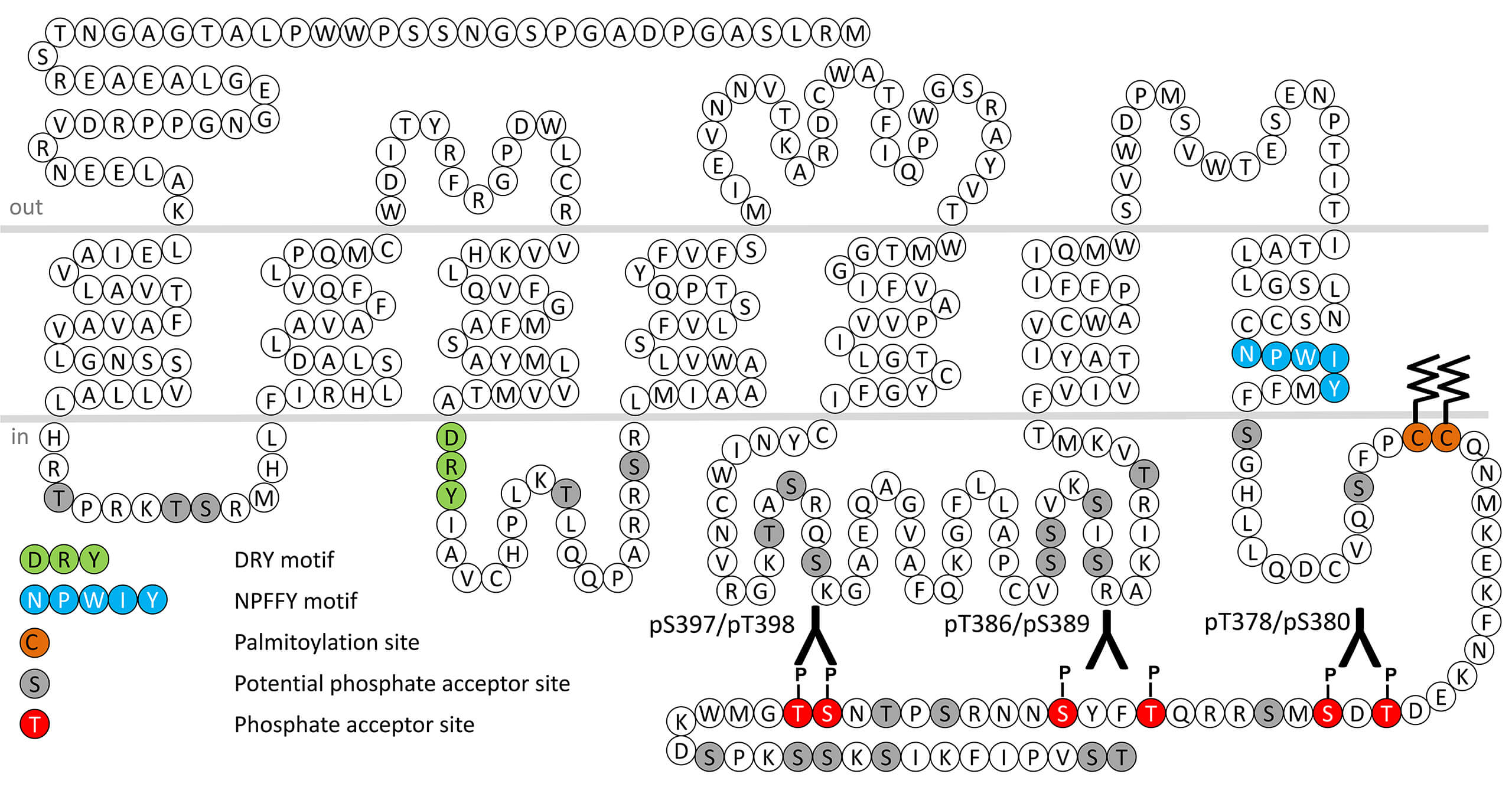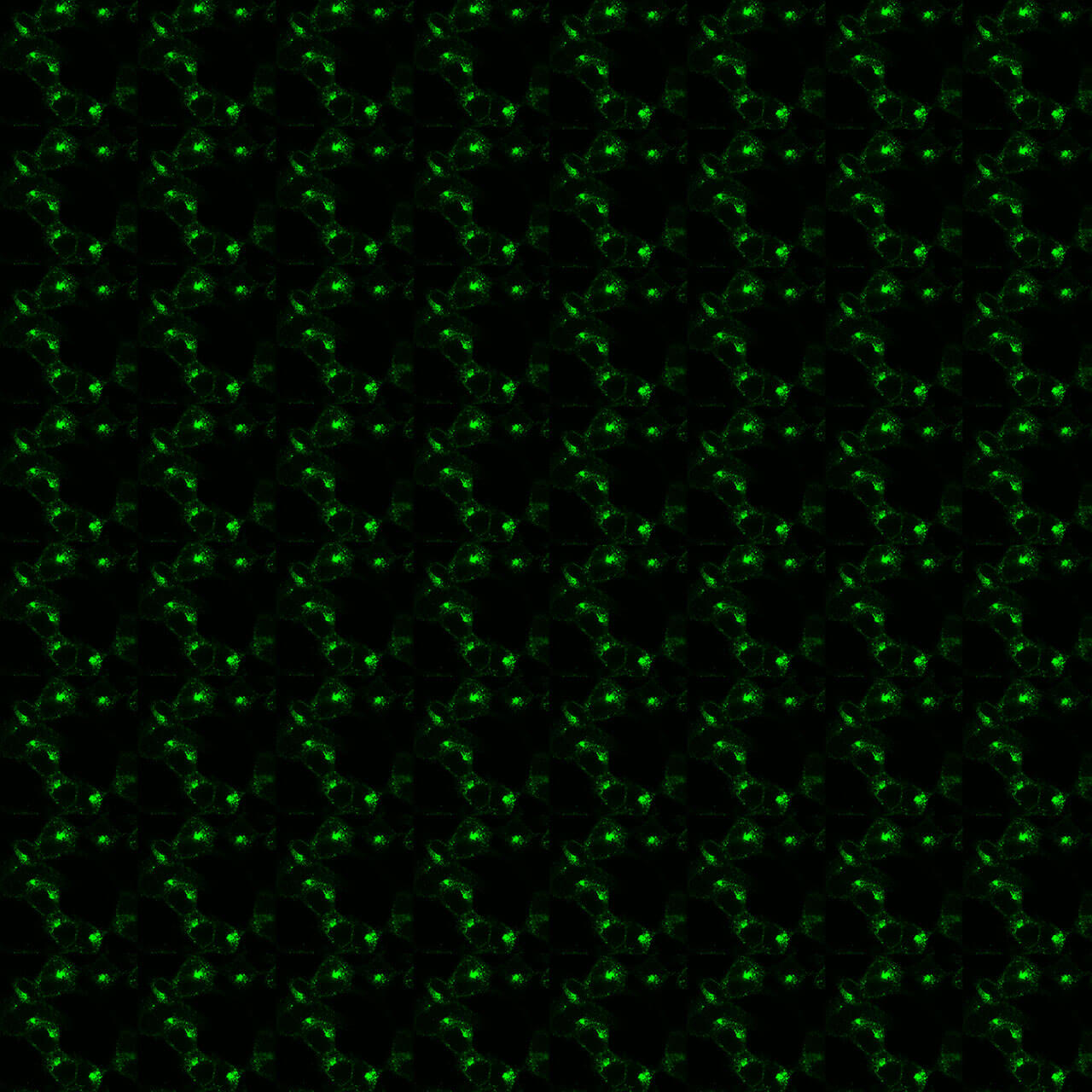V1A Vasopressin Receptor Antibodies

The V1A receptor is named the hepatic/vascular subtype of vasopressin receptors. Human and rat receptors share 72% sequence identity. The V1A receptor is primarily coupled to an increase in phosphatidylinositol breakdown with production of inositol triphosphate and diacylglycerol leading to a rise in cytosolic free calcium concentration and activation of proteine kinase C, respectively. Production of inositol phosphates is generated through activation of Gq protein and phospholipase C. The V1A is widely distributed in peripheral tissues and different areas of the central nervous system. Specifically, the V1A receptor is expressed in liver, vascular smooth muscles, heart, platelets, adrenal gland, testes, urinary bladder, and also in brainstem, cerebral cortex, hippocampus, hypothalamus, olfactory bulb, striatum. Selective V1A agonists and antagonists have been developed. AVP increases the arterial blood pressure by acting on the V1A subtype which is present in the vessel walls. The name "vasopressin" comes from the its vasoconstriction activity. V1A receptor knockout mice exhibit altered glucose homeostasis, a decrease in blood pressure and circulating blood volume, impaired aldosterone secretion, impaired spatial memory, subtle olfactory deficit but normal aggression, a decrease in anxiety-like behaviour and impaired social recognition. V1A receptor activity is regulated by phosphorylation of carboxyl-terminal threonine378/serine380 (pT378/pS380-V1A), threonine386/serine389 (pT386/pS389-V1A) and serine397/serine398 (pS397/pS398-V1A). This nomenclature refers to the human V1A receptor. This phosphorylation motif is conserved across species and is highly homologous in mice and rats. For more information on V1A pharmacology please refer to the IUPHAR database. For further reading refer to:
Carter CS, Kenkel WM, MacLean EL, Wilson SR, Perkeybile AM, Yee JR, Ferris CF, Nazarloo HP, Porges SW, Davis JM, Connelly JJ, Kingsbury MA. Is Oxytocin "Nature's Medicine"? Pharmacol Rev. 2020 Oct;72(4):829-861. doi: 10.1124/pr.120.019398. PMID: 32912963; PMCID: PMC7495339.
Bichet D, Bouvier M, Chini B, Gimpl G, Guillon G, Kimura T, Knepper M, Lolait S, Manning M, Mouillac B, O'Carroll AM, Serradeil-Le Gal C, Soloff M, Verbalis JG, Wheatley M, Zingg HH. Vasopressin and oxytocin receptors (version 2019.4) in the IUPHAR/BPS Guide to Pharmacology Database. IUPHAR/BPS Guide to Pharmacology CITE. 2019; 2019(4).
 pT378/pS380-V1A (phospho-Vasopressin Receptor...
pT378/pS380-V1A (phospho-Vasopressin Receptor...  pT386/pS389-V1A (phospho-Vasopressin Receptor...
pT386/pS389-V1A (phospho-Vasopressin Receptor...  pS397/pT398-V1A (phospho-Vasopressin Receptor...
pS397/pT398-V1A (phospho-Vasopressin Receptor... 

